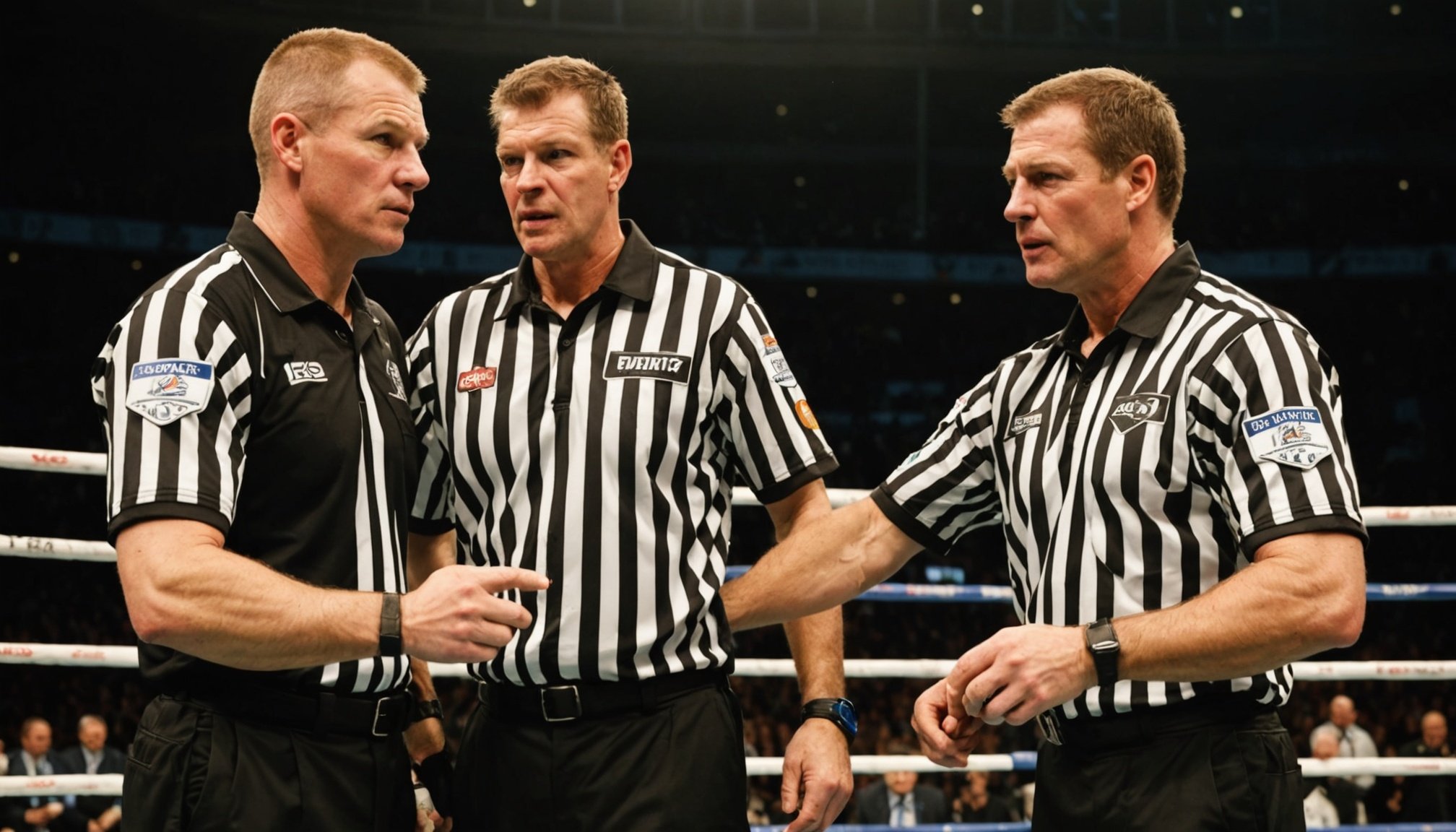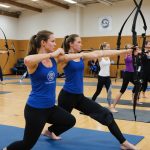Understanding Equity in Combat Sports Officiating
In combat sports, equity in officiating is vital to ensure all athletes are subject to fair judgment during events. It sets the foundation for fairness in combat sports competitions, addressing the potential biases and subjective decisions that can significantly sway the outcome of a match. The concept of equity is not just about equal treatment but also about what is just and fair for each athlete, taking into account the unique circumstances of every bout.
Referees play a critical role in this domain, acting as impartial arbitrators to uphold the integrity of the sport. Their decisions influence not just the immediate match outcomes but also the careers and reputations of the athletes. Any perceived lack of referee integrity can lead to controversies and questions regarding the legitimacy of the results. Thus, ensuring equity in officiating becomes crucial for maintaining trust in the sport.
In parallel : How can martial artists use visualization techniques to boost their performance?
The impact of referee decisions extends beyond the ring or arena. A call made in a split second can determine the trajectory of an athlete’s career. Hence, promoting fairness and equity isn’t merely an ethical imperative; it’s a professional necessity. Referees must be trained to minimize biases, thereby fostering an environment where skill and prowess, rather than officiating errors, determine the victor.
Key Strategies for Imparity in Decision-Making
In the realm of strategic decision-making, ensuring unbiased officiating is paramount for fairness. Referee training plays a crucial role in this.
In the same genre : How do specific breathing techniques enhance performance in combat sports?
Implementing Standardized Rules
A cornerstone of fair play is the consistent rule enforcement. Adhering to uniform standards boosts confidence in referees and athletes alike, ensuring everyone is on the same page. Clear rules offer benefits beyond just fairness; they streamline the decision-making process, minimizing disputes and misunderstandings. Ongoing education on rules through regular workshops can significantly enhance this clarity, making it easier for referees to remain impartial.
Bias Recognition and Mitigation Techniques
Understanding and recognizing personal biases is vital. These biases, if unchecked, can heavily skew decisions during matches. Implementing techniques like self-assessment and reflection can aid in impartial evaluations. Moreover, fostering feedback mechanisms encourages growth and improvement, empowering referees to maintain objectivity and continuously evolve in their officiating roles.
Utilizing Technology for Enhanced Judgement
Modern officiating is increasingly embracing technology. Tools such as video replays and data analytics assist in refining strategic decision-making. Technology enables referees to review actions accurately and make informed decisions. Looking to the future, advancements in technology promise even greater integration in combat sports, paving the way for unbiased officiating. These innovations hold the potential to redefine fairness in sports, ensuring decisions are not just swift, but also precise.
Case Studies of Effective Officiating
Effective officiating can significantly impact the outcome and fairness of a sporting event. Numerous case studies in officiating reveal remarkable instances where referees have demonstrated outstanding decision-making skills. These examples help illuminate the importance of maintaining impartiality, ensuring equity, and upholding the integrity of sports.
In a memorable football match, the referee applied successful referee practices by consistently enforcing rules without bias, leading to a fair outcome. One crucial instance involved correctly identifying an offside situation amidst intense pressure from both teams. This equity example showcases how steadfast adherence to rules fosters a level playing field.
Consider a basketball scenario: a heated altercation erupted between two teams. The referee diffused the situation by implementing effective communication techniques, demonstrating another successful referee practice. By addressing the players’ concerns calmly and promptly, order was restored without escalating tensions further.
From such experiences, officials can learn valuable lessons. Proper preparation, familiarity with the rules, and honing conflict-resolution skills are pivotal. In contrast, problematic officiating, marked by inconsistency or partiality, can lead to disputes and dissatisfaction among teams and spectators.
These case studies highlight that successful referees not only ensure fairness but also enhance the overall experience and credibility of sporting events.
Training and Development for Referees
In the competitive world of sports, referee training programs play a crucial role in maintaining the integrity and fairness of the game. A well-structured training program is essential for developing the skills and knowledge necessary for effective officiating.
Establishing Comprehensive Referee Programs
A holistic approach to referee training programs is required to address the diverse demands of modern sports. Essential components include a solid foundation in the rules, technology training, and continuous education for referees. Moreover, mentorship offers significant benefits, providing real-life insights and emotional support through peer reviews. Ensuring physical and mental preparedness is critical, as referees endure intense pressure during games. Regular fitness assessments help maintain their physical condition, while mental coaching prepares them for decision-making under stress.
Workshops and Real-World Simulations
Workshops incorporating role-playing and scenario-based training are effective for officiating development. These practical exercises enhance skills by simulating game-like situations. Participatory learning allows referees to experience different scenarios, preparing them for unexpected events on the field. Workshops often involve experts who guide referees through complex situations, improving decision-making and adaptability.
Continuous Feedback and Assessment
Continuous improvement is fostered through regular performance reviews, providing critical insights into referees’ strengths and weaknesses. Utilizing advanced tools to collect and analyze data ensures comprehensive assessment. Encouraging an open culture for feedback among officials is vital for refining overall performance, leading to a more experienced and competent officiating body.
Community and Support in Officiating
A robust officiating community plays a crucial role in fostering a supportive environment for referees. Referees face unique challenges that require comprehensive understanding and mutual encouragement. Support networks for referees are essential in providing emotional and professional backing. Such networks offer a platform for sharing experiences, lessons learned, and best practices that contribute to improved performance on the field.
Peer support systems form the backbone of these networks, promoting open dialogue about the specific challenges referees face. This ensures that every referee has access to insights and advice from those who have faced similar situations. By actively participating in an officiating community, referees can better navigate the pressures of their role and enhance their decision-making capabilities.
Promoting open dialogue within these networks is key for discussing challenges and potential solutions in officiating. This open communication fosters an environment of trust and encourages continuous improvement. Referees benefit from hearing diverse perspectives and innovative strategies for managing on-field scenarios.
Ultimately, building and sustaining strong support networks for referees enhances their confidence and capability, ensuring they can officiate effectively and fairly. The practical benefits for individual referees and the overall standard of officiating are significant, promoting a culture of collaboration and development within the community.










